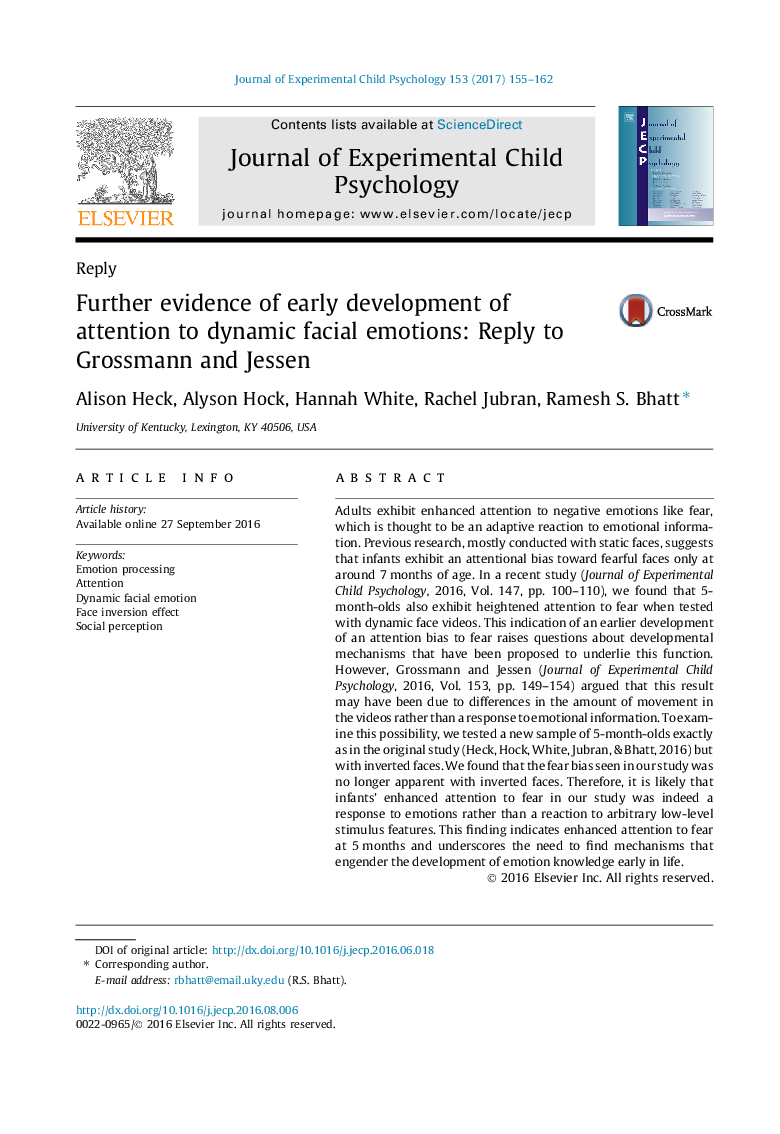| کد مقاله | کد نشریه | سال انتشار | مقاله انگلیسی | نسخه تمام متن |
|---|---|---|---|---|
| 5040009 | 1473459 | 2017 | 8 صفحه PDF | دانلود رایگان |
• Heck and Colleagues (2016) claimed that 5-month-olds exhibit enhanced attention to fearful faces in videos.
• Grossman and Jensen (2016) suggested that infants may have been responding to movement rather than emotion.
• We tested infants with inverted versions of the videos and found no effects of movement.
• Thus, infants’ performance with upright stimuli was not due to low-level features like movement.
• These results indicate systematic attention to fear early in life.
Adults exhibit enhanced attention to negative emotions like fear, which is thought to be an adaptive reaction to emotional information. Previous research, mostly conducted with static faces, suggests that infants exhibit an attentional bias toward fearful faces only at around 7 months of age. In a recent study (Journal of Experimental Child Psychology, 2016, Vol. 147, pp. 100–110), we found that 5-month-olds also exhibit heightened attention to fear when tested with dynamic face videos. This indication of an earlier development of an attention bias to fear raises questions about developmental mechanisms that have been proposed to underlie this function. However, Grossmann and Jessen (Journal of Experimental Child Psychology, 2016, Vol. 153, pp. 149–154) argued that this result may have been due to differences in the amount of movement in the videos rather than a response to emotional information. To examine this possibility, we tested a new sample of 5-month-olds exactly as in the original study (Heck, Hock, White, Jubran, & Bhatt, 2016) but with inverted faces. We found that the fear bias seen in our study was no longer apparent with inverted faces. Therefore, it is likely that infants’ enhanced attention to fear in our study was indeed a response to emotions rather than a reaction to arbitrary low-level stimulus features. This finding indicates enhanced attention to fear at 5 months and underscores the need to find mechanisms that engender the development of emotion knowledge early in life.
Journal: Journal of Experimental Child Psychology - Volume 153, January 2017, Pages 155–162
